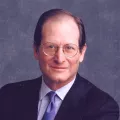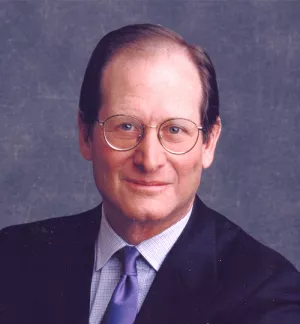Oliver Wendell Holmes was one of America's great jurists, first as chief justice of the Massachusetts Supreme Judicial Court (1899-1902) and then as associate justice of the United States Supreme Court (1902-1932).
But despite a storied career as judge and legal thinker, Holmes was most proud of his service during the American Civil War as a first lieutenant in the 20th Massachusetts Infantry Regiment and then as aide-de-camp to a union general. He was seriously wounded three times -- at the battles of Ball's Bluff, Antietam and Fredericksburg.
He insisted on being buried in Arlington Cemetery with his fellow soldiers, and his gravestone, under a tree not far from John F. Kennedy's interment site, lists his military career with the Massachusetts infantry first ahead of his service on the Supreme Court of the United States.
Memorial Day honors all American soldiers, but the holiday had its origins in remembrance of the Civil War dead. And, of the incalculable words spoken on this day of reflection, few equal in eloquence the famous Memorial Day oration delivered by Oliver Wendell Holmes in 1884 in Keene, New Hampshire.
Said Holmes (italics added):
We can hardly share the emotions that make this day to us the most sacred day of the year, and embody them in ceremonial pomp, without in some degree imparting them to those who come after us. I believe from the bottom of my heart that our memorial halls and statues and tablets, the tattered flags of our regiments gathered in the Statehouses, are worth more to our young men by way of chastening and inspiration than the monuments of another hundred years of peaceful life could be...
I see another youthful lieutenant as I saw him in the Seven Days, when I looked down the line at Glendale. The officers were at the head of their companies. The advance was beginning. We caught each other's eye and saluted. When next I looked, he was gone.
I see the brother of the last--the flame of genius and daring on his face--as he rode before us into the wood of Antietam, out of which came only dead and deadly wounded men. So, a little later, he rode to his death at the head of his cavalry in the Valley...
When we meet thus, when we do honor to the dead in terms that must sometimes embrace the living, we do not deceive ourselves. We attribute no special merit to a man for having served when all were serving. We know that, if the armies of our war did anything worth remembering, the credit belongs not mainly to the individuals who did it, but to average human nature. We also know very well that we cannot live in associations with the past alone, and we admit that, if we would be worthy of the past, we must find new fields for action or thought, and make for ourselves new careers.
But, nevertheless, the generation that carried on the war has been set apart by its experience. Through our great good fortune, in our youth our hearts were touched with fire. It was given to us to learn at the outset that life is a profound and passionate thing. While we are permitted to scorn nothing but indifference, and do not pretend to undervalue the worldly rewards of ambition, we have seen with our own eyes, beyond and above the gold fields, the snowy heights of honor, and it is for us to bear the report to those who come after us. But, above all, we have learned that whether a man accepts from Fortune her spade, and will look downward and dig, or from Aspiration her axe and cord, and will scale the ice, the one and only success which it is his to command is to bring to his work a mighty heart.
The Civil War had a profound impact on Holmes the professor and the jurist. His experience in bloody conflict made him an unsentimental realist who understood law as an expression of power, not the intellectual pursuit of formal rules. It is not too much to say that his experience in war led to perhaps his most famous pronouncement (in The Common Law in 1881), which has had great influence down the years: "The life of the law has not been logic: it has been experience."
Heineman, Ben. “Justice Oliver Wendell Holmes and Memorial Day.” The Atlantic, May 30, 2011



